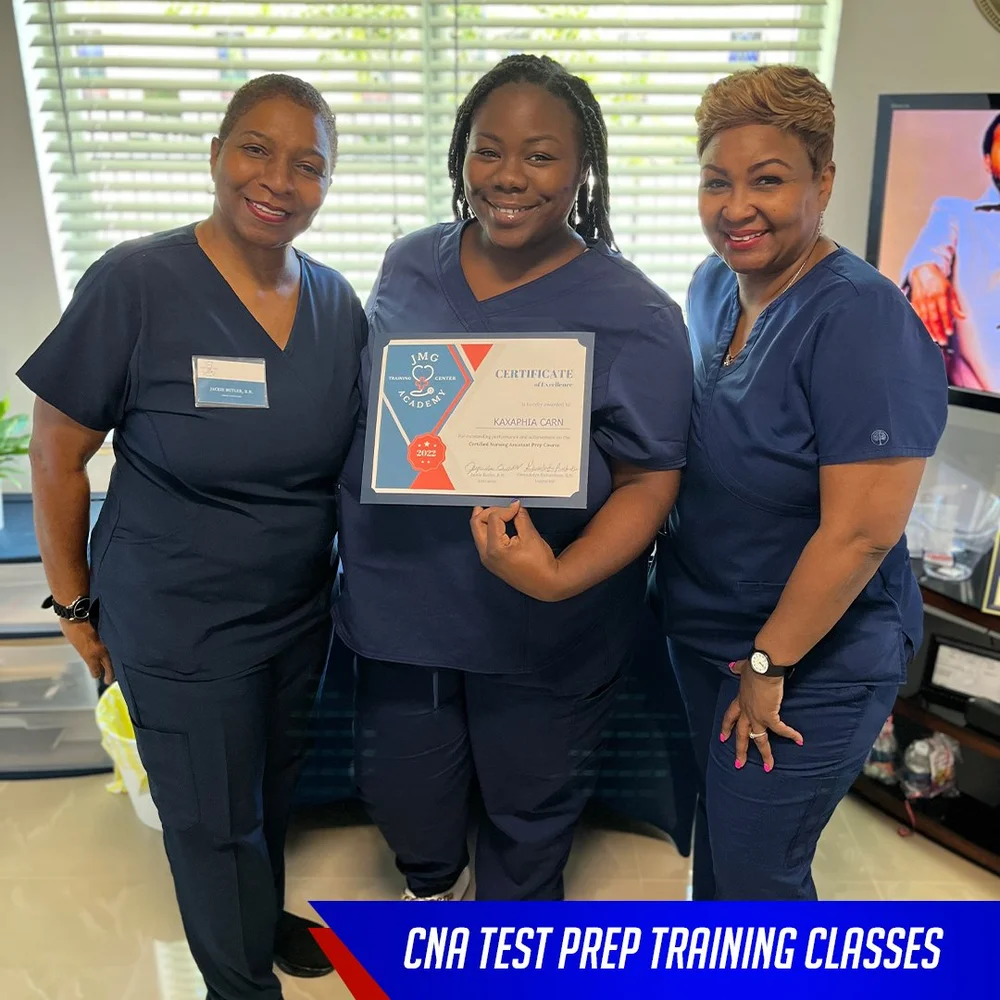CNA Classes: Best Practices to Balance Work, School, and Life
How CNA Classes Can Help You Launch an Effective Career in the Medical Field
CNA classes offer as a foundational stepping stone for people desiring go into the clinical field. These programs impart crucial abilities, including reliable communication and personal care strategies. Students engage in hands-on training, connecting concept with sensible application. As the need for medical care experts expands, the role of a Certified Nursing Assistant becomes significantly significant. This elevates questions regarding the numerous career courses and innovation possibilities that lie ahead for those that finish their training.

Understanding the Duty of a Certified Nursing Assistant
The role of a Certified Nursing Assistant (CNA) is essential to the health care system, acting as a crucial link in between people and clinical personnel. CNAs mostly aid clients with daily activities such as showering, dressing, and consuming, ensuring their comfort and self-respect. They are typically the very first point of call for clients, offering important emotional assistance and companionship. In addition to individual treatment, CNAs are responsible for keeping track of individuals' essential indicators, reporting changes in condition to nursing staff, and maintaining patient records. Their tasks extend to guaranteeing cleanliness in client environments and assisting with mobility. This role requires a compassionate disposition, strong interaction abilities, and the capacity to function effectively under pressure. By helping with a smooth workflow within healthcare setups, CNAs play a substantial component in improving the general client experience and supporting the more comprehensive clinical group in providing top notch care.
Key Skills Acquired in CNA Classes
CNA classes gear up students with essential abilities essential for supplying top notch individual care. One of the primary abilities established works communication, enabling CNAs to interact compassionately with patients and plainly relay info to health care teams. Students also learn crucial reasoning, which helps in evaluating patient demands and reacting appropriately in different situations.
In addition, CNA programs emphasize individual care abilities, encompassing aid with daily living tasks such as bathing, clothing, and feeding - CNA Classes. Infection control techniques are one more crucial element, ensuring that pupils understand exactly how to keep a risk-free setting for both patients and themselves
In addition, students get expertise in basic clinical terms, helping with much better understanding of medical care practices. Time administration abilities are grown to help CNAs prioritize tasks successfully. In general, these vital skills develop the structure for an effective career in the medical area, preparing pupils to satisfy the varied needs of clients.

The Benefits of Hands-On Training
Acquiring useful experience via hands-on training is vital for aiming CNAs, as it links the space between academic expertise and real-world application. This immersive discovering technique makes it possible for trainees to develop important skills required for client care, such as efficient interaction, empathy, and technical capacities. Engaging in real-life circumstances enables trainees to comprehend the characteristics of a health care setting, promoting confidence in their capabilities.
Moreover, hands-on training helps trainees become knowledgeable about essential devices and treatments, ensuring they are well-prepared for the difficulties of the work. It additionally offers possibilities to obtain immediate comments from trainers, boosting the learning experience. By working directly with individuals under guidance, aiming CNAs can develop their empirical skills and learn to react to numerous situations properly. Eventually, hands-on training furnishes these future healthcare specialists with the competence and assurance necessary to be successful in their functions.
Profession Opportunities After Ending Up Being a CNA
Many job possibilities wait for people who complete their CNA training, opening doors to numerous duties in the medical care field. Certified Nursing Assistants (CNAs) are crucial participants of the health care team, offering direct person treatment in settings such as healthcare facilities, taking care of homes, and assisted living facilities - CNA Classes. Their duties page can consist of assisting with daily living tasks, monitoring critical indicators, and supplying emotional assistance to individuals
Beyond typical settings, CNAs might likewise find possibilities in specialized areas, such as recovery centers or home healthcare. In addition, some may shift right into roles in management support or person advocacy, leveraging their direct experience with patients. The need for CNAs remains to expand, driven by a maturing population and a raised concentrate on top quality patient treatment. This high need assurances that people entering the area have a selection of choices to seek, making it an attractive entrance factor into a satisfying career in health care.
Paths for Advancement in the Healthcare Field
Improvement in the medical care area offers multiple pathways for individuals seeking to improve their professions beyond the function of a Certified Nursing Assistant. After getting experience, several CNAs decide to pursue additional education and learning and certifications, such as ending up being a Licensed Nurse (LPN) or Nurse Practitioner (RN) This shift frequently includes registering in connecting programs that recognize their existing skills.
Additionally, specialized certifications in locations like geriatrics or pediatric medicines can open up doors to particular niche functions, improving both job contentment and wage possibility. CNAs might likewise explore administrative placements, such as wellness treatment administration or patient treatment control, which utilize their frontline experience in a different capability.
Constant expert growth with workshops and seminars can maintain CNAs updated on sector requirements, making them more affordable prospects for improvement. The health care area offers various opportunities for growth, allowing CNAs to shape their occupation trajectories effectively.
Regularly Asked Concerns

Exactly How Long Do CNA Classes Usually Require To Full?
CNA classes normally take between four to twelve weeks to finish, depending upon the program structure. Factors such as training course strength, scheduling, and the institution's educational program style can influence the total duration of training.
What Is the Cost of CNA Training Programs?
The price of CNA training programs varies widely, typically varying from $300 to $2,000. Elements affecting this expense include site here area, program length, and whether the training is offered through area colleges or exclusive institutions.
Are Online CNA Classes Available?
On-line CNA classes are without a doubt offered, offering versatility for students. Several organizations provide online training, enabling people to finish coursework at their own rate while still meeting the essential requirements for qualification in nursing assistance.
What Is the Accreditation Exam Process Like?
The qualification exam procedure typically includes a written examination assessing understanding and an abilities demonstration. Prospects have to pass both components to end up being qualified, ensuring they satisfy the needed competencies required for nursing assistant duties.
Do I Required Prior Health Care Experience to Enlist in CNA Classes?
Prior medical care experience is not a prerequisite like it for registering in CNA classes. People from numerous histories can enter the program, as it is developed to supply thorough training and understanding needed for effective qualification and technique.